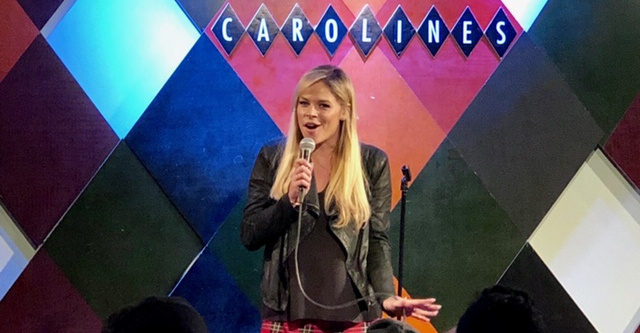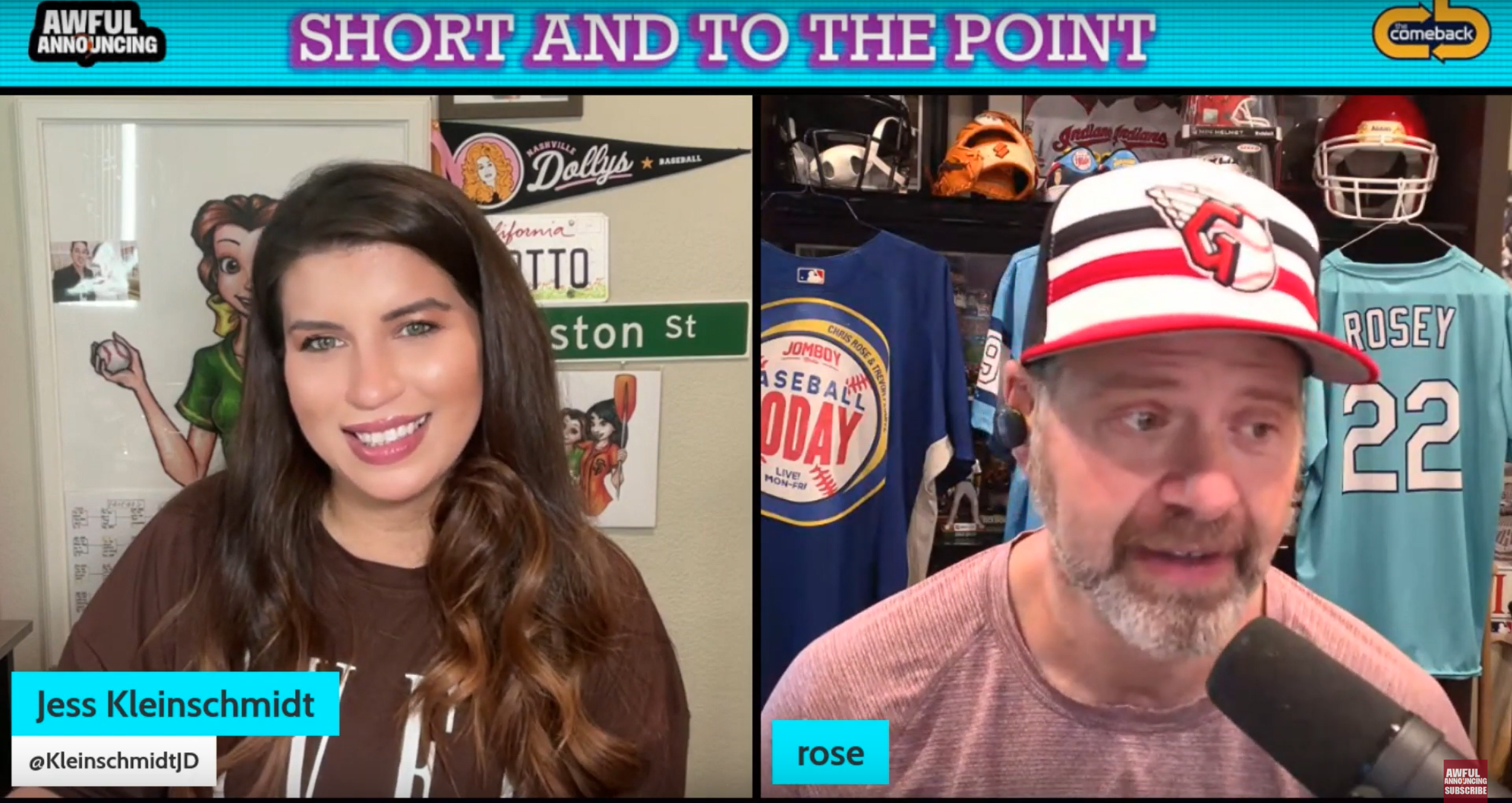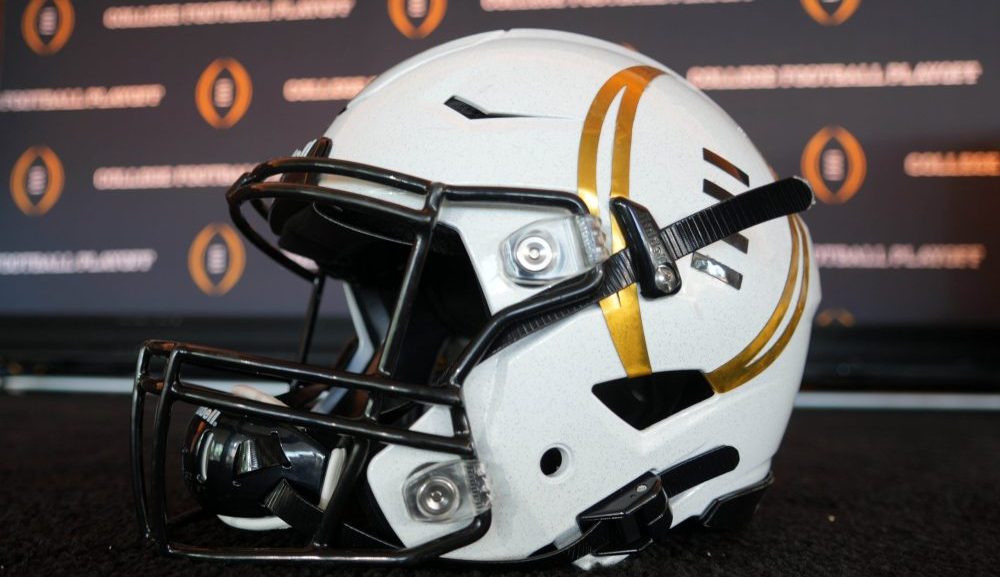Stewart-Binks said her overall approach of going with whatever roles are open to her dates all the way back to her time a decade ago as a student broadcaster at Queen’s University in Kingston, Ontario (disclosure: we were students there at the same time, and that’s where I first got to know her, particularly when she contributed to the Queen’s Journal while I worked there). She initially wanted to be on campus radio station CFRC, but wound up mostly working for TV outlet Queen’s TV instead, as that’s what was available.
“There was a real fork in the road there too for me. I went to CFRC to volunteer and they said there was no room, so I went to Queen’s TV instead. I was only set on going to CFRC, I wasn’t planning on doing TV…I just walked in on Clubs Night and they said ‘We need someone to do an interview with [coffee shop] Common Ground tomorrow,’ and I was like ‘Okay, yeah, I’ll do that.’ I think part of that too is just following what doors are opening.”
She said her QTV experience was valuable on multiple levels, from finding out what it’s like to appear on camera to hustling for different opportunities.
“It taught me so much. I was so awkward on camera and I wasn’t ready for anything. And it’s funny because I see a lot of people start in broadcast and some of them are just so good naturally at the beginning and I’m like ‘That might be their first time on air, and they’re great.’ That took me quite a while not to be awkward, and I’m sure I still am sometimes. And just learning to hustle, QTV was great then in that regard, and also that transferred to everything I did in Canada. It was a slog, it was really hard.”
Stewart-Binks said she felt wider Canadian TV opportunities were particularly limited thanks to the lack of competition there and thanks to the focus on doing things the way they’ve traditionally been done.
“I feel Canada is a little behind, and by a little, I mean a lot. In terms of politically and the rest of the world, I think they’re ahead of the U.S., but somehow not in media. And I think it has to do with money and advertising and whatnot. It seems very safe. Obviously Jay and Dan are always going to be Jay and Dan, and they kind of push the boundaries, but for the most part, it’s sort of ‘A plus B equals C.’ And I did look to Canada and think maybe I would go to Toronto for the right job, and then I just thought like ‘You know what, if you want to be big and you want The Tonight Show, you do have to stick it out in the U.S.'”
“There’s more people, there’s more money, there’s more opportunity in the space. And with that, you have more creativity. And there’s more competition.
There’s only two networks in Canada. I’m not trying to say anything negative, but it’s a totally different country.”
The latest
“I’ve had certain sorts of moments in my life where I think like ‘Is this it?’ This summer I was going to start writing my book, and then I thought ‘What if this is it? What if this was the end?’ And then I was like ‘No, honey, you can’t even let that thought enter your mind.’ It did kind of make me a bit depressed. I did resonate a bit with Katie Nolan’s story where she essentially couldn’t get out of bed for weeks. I’d be walking down the street and then I’d just start crying, like ‘I just don’t know where I’m going, I don’t know what it is.'”
“And then you just have to sit, calm your mind and think ‘Okay, what’s gonna make me happy?’ Like from the very basic level; when you get up, you say ‘What’s going to make me happy? Okay, well, I really like doing this fun improv thing.’ ‘Okay, that’s number one. What else do you like?’ ‘Okay, I like watching these shows, I like my sports.’ And then you just kind of start to figure out what your new reality is.”
She said she thinks the important message from her journey is that it’s tough to be told you’re not wanted, but that there can eventually be opportunities you might not expect if you’re willing to step outside your comfort zone.
“I want people to know it’s not easy. This whole time off thing…while I was funemployed for a long time, it did allow me to experience some things. But just because the doors you think should be opening aren’t opening doesn’t mean that that’s bad. Just because you call and try to get in to do this job that you’ve done a million times and no one will answer your call doesn’t mean it’s a bad thing. It’s supposed to happen.”
“And I don’t want to sound like a crazy hippie, but I am starting to kind of believe in that. And that is very much what improv is, ‘Yes, and.’ Someone says ‘Hey, do you want to go to this thing?’, ‘Oh, you should come to this course,’ so I say ‘Sure.’ If I can go, I’m going to go. So I’m just going with that kind of energy.”
Stewart-Binks said she also uses the doubters and the critics as motivation to get where she needs to go.
“I had a lot of former bosses at many different places not believe in me. I’ve tweeted about them sometimes. And there’s one in particular who still works at FS1, who I would say just really kind of hurt my development mentally and at FS1. He always just was very negative on my abilities and was just like ‘You don’t have what it takes to be a fun interesting personality.’ And I always remembered that and thought, ‘No, I know I do, and I’m going to prove it to you that you messed up. Kind of like a draft pick when you’re overlooked. I always have him kind of in the back of my mind, not a lot, but ‘I know that you can see me doing this stuff, and I hope that you regret saying the things you did to me.'”
“And I think that happens a lot in the industry. And so for all those young people out there, whoever you are, so many people have reached out being like ‘I just got let go, and I’ve seen you finally come out of it all.’ And you just literally do not stop believing in yourself, like double down on your belief or else you’re screwed. Or else you’re not going to get anywhere.'”







